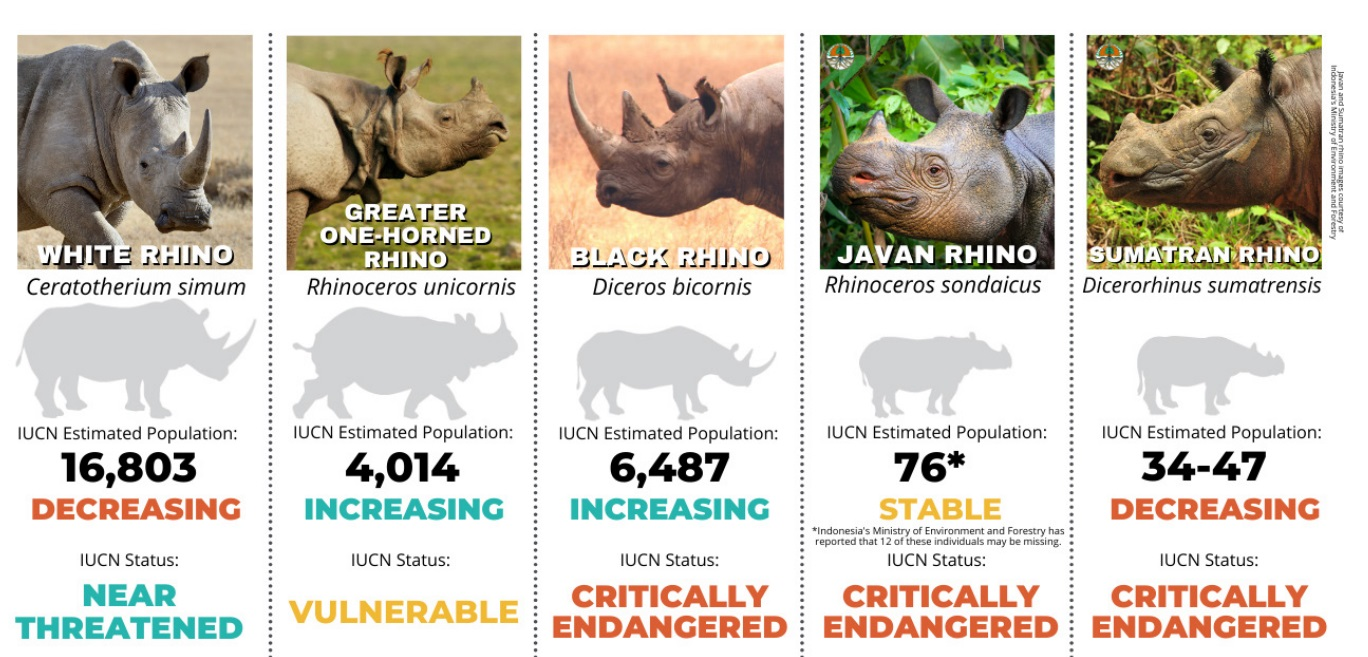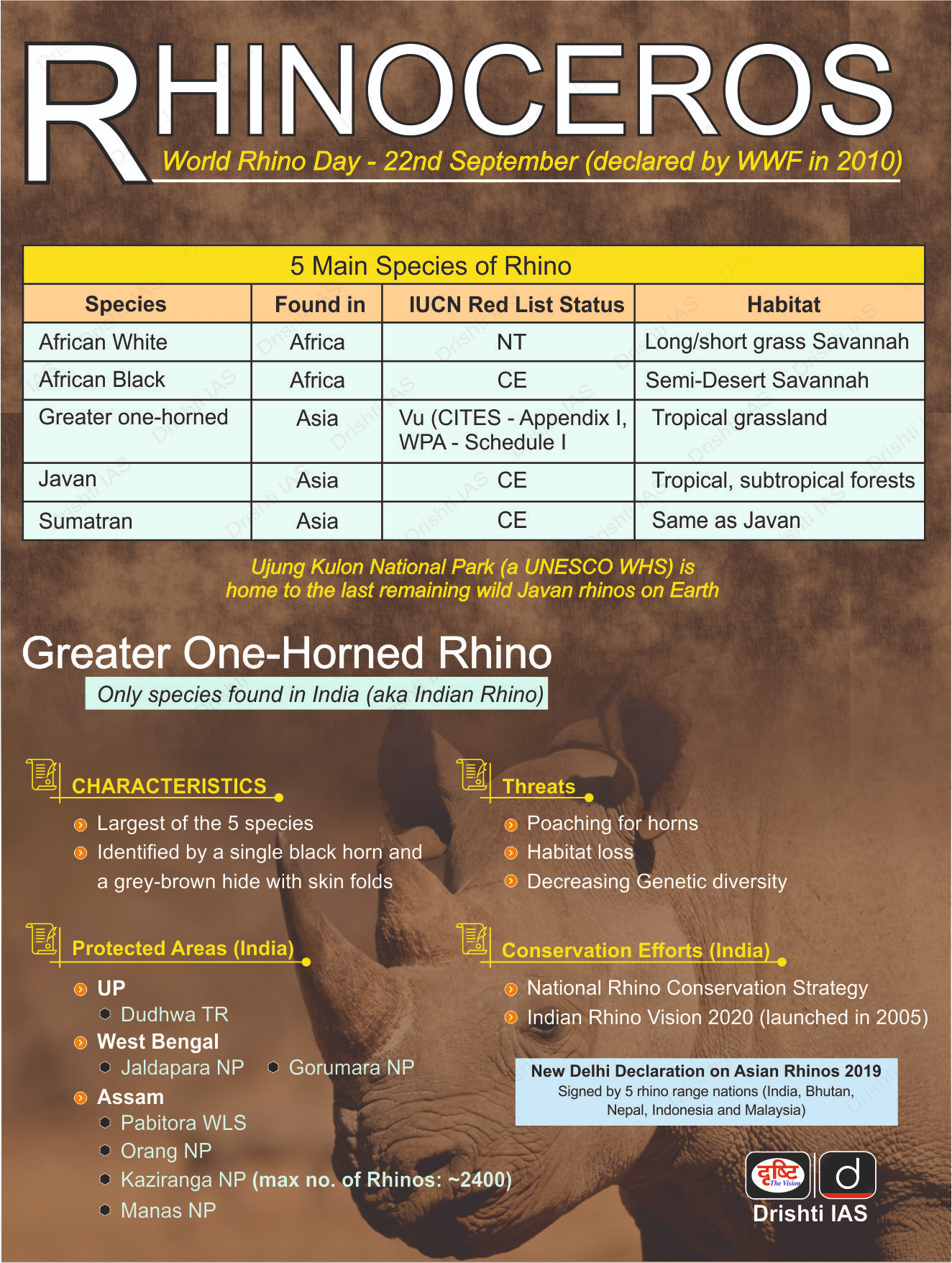Important Facts For Prelims
Rhisotope Project
- 28 Jun 2024
- 5 min read
Why in News?
Recently, South African scientists injected radioactive material into live rhinoceros horns to make them easier to detect at border posts in a pioneering project aimed at curbing poaching.
What is the Rhisotope Project?
- About:
- The Rhisotope Project commenced in 2021 and involves administering measured quantities of radioisotopes into the horns of live rhinos.
- Under the project "two tiny little radioactive chips" were inserted into the horn of a rhinoceros.
- The radioisotopes make the horn "useless" and "poisonous for human consumption."
- The project's final phase includes aftercare and follow-up blood samples to ensure the animals are protected, with the radioactive material lasting five years on the horn, proving more cost-effective than dehorning every 18 months.
- This project aims to use nuclear science in a novel way for conservation.
- This non-lethal yet powerful solution aims to radically reduce the demand from end-users and save rhinos from the very real threat of extinction.
- Impact:
- The procedure, performed on sedated rhinoceroses, is safe for the animals, with a radiation dose low enough not to affect their health or the environment.
- Radioactively treated horns are more likely to be detected at international borders, making it more likely that smuggling syndicates are exposed, prosecuted and convicted under anti-terrorism laws.
- Need:
- Rhinoceros horns are highly valuable on black markets, with prices comparable to gold and cocaine.
- Previous anti-poaching strategies like dehorning and poisoning horns have failed to deter poachers.
- Despite government efforts, 499 rhinoceroses were killed in 2023, an 11% increase from 2022, primarily in state-run parks.
Legal Frameworks for Wildlife Conservation
- Global Wildlife Conservation Efforts to which India is a Party:
-
Conservation Efforts Specifically for Rhinos:
- National Rhino Conservation Strategy
- Indian Rhino Vision 2020
- Translocation: Rhino translocations to Manas National Park set for the beginning of 2023 were rescheduled for 2024 while security measures were reinforced after a poached rhino was discovered in January.
- Rhino Corridor: In 2022, the Assam government finalized the addition of approximately 200 sq km to Orang National Park in north-central Assam, more than doubling the size of this protected area and key rhino habitat.
UPSC Civil Services Examination, Previous Year Question (PYQ)
Prelims:
Q. Consider the following statements in respect of Trade Related Analysis of Fauna and Flora in Commerce (TRAFFIC): (2017)
- TRAFFIC is a bureau under United Nations Environment Programme (UNEP).
- The mission of TRAFFIC is to ensure that trade in wild plants and animals is not a threat to the conservation of nature.
Which of the above statements is/are correct?
(a) 1 only
(b) 2 only
(c) Both 1 and 2
(d) Neither 1 nor 2
Ans: (b)
Q. Consider the following statements: (2019)
- Asiatic lion is naturally found in India only.
- Double-humped camel is naturally found in India only.
- One-horned rhinoceros is naturally found in India only.
Which of the statements given above is/are correct?
(a) 1 only
(b) 2 only
(c) 1 and 3 only
(d) 1, 2 and 3
Ans: (a)






